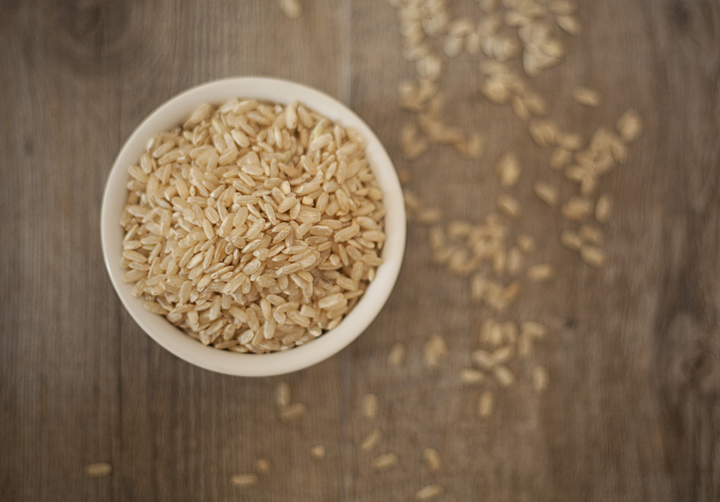4 Things All Successful Diets Have in Common
Mar 6, 2015

Did you know?March is National Nutrition Month, an annual campaign created by the Academy of Nutrition and Dietetics. The theme for 2015 is “Bite into a Healthy Lifestyle” and encourages consumers to eat fewer calories, make informed food choices, and exercise daily in order to achieve and maintain a healthy weight, reduce the risk of chronic disease and promote overall health.
So forget the fads, the fancy names, and the Hollywood diet “experts.” Whether your diet is vegan, Zone or gluten-free, all diet plans with the clout to get you to your goals and the seal of approval from nutrition professionals have four important things in common. Read on to find out if your diet plan makes the cut.

Lots of Veggies According to the CDC, only 27 percent of Americans eat the recommended daily servings of vegetables (the recommendation for adults is about 5-7 servings per day; a serving equals one cup of leafy greens or ½ cup of chopped veggies like cauliflower).
According to the CDC, only 27 percent of Americans eat the recommended daily servings of vegetables (the recommendation for adults is about 5-7 servings per day; a serving equals one cup of leafy greens or ½ cup of chopped veggies like cauliflower).This year, increase your chances of meeting and even exceeding this goal by learning more ways to eat veggies because, let’s face it – if you’re steaming broccoli every night, it’s time to branch out.
As you may have guessed, from a nutritional perspective, loading up on veggies is a great trend. By eating less meat and more vegetable-based entrees, you are likely to be eating less saturated fat and cholesterol and more fiber, phytochemicals, and antioxidants.
Ditch the excuses – “It’s inconvenient to eat fresh vegetables and fruit” or “I don’t like fruits and vegetables” – and make this your year to pump up the produce. Your heart and your waistline will thank you!
A Focus on Quality
While we all know that cutting calories is important, nutritionists also recommend focusing on the quality of the foods you are eating. Any healthful diet will focus on good-quality, nutrient-dense foods. But this doesn’t necessarily mean organic, fresh-from-the-farm foods all day every day. Not only are these foods hard to find, but they can be pricey, especially for families on a budget.
When you think of quality, there are two keys to remember:- Focus on foods that have been minimally processed (for example, eat a whole apple instead of applesauce or even more highly processed, apple juice) and
- Seek out nutrient-dense foods, which means that calorie for calorie, the food provides a high nutrient content (for example, blueberries are loaded with health-promoting anti-oxidants and are super low in calories).
Also, think of frozen foods as high-quality, nutrient-rich foods. According to Dr. Andrew Weil, a world-renowned leader and pioneer in the field of integrative medicine, “In some cases, frozen vegetables may be more nutritious than fresh ones that have been shipped over long distances.”
No Nutrient Gaps
If your diet excludes gluten, for example, you’ll need to account for a shortfall of B vitamins, including folate. If you’re eating a mostly vegetarian menu, you’ll want to supplement with B12. In general, a drug store multivitamin can usually make up for any nutrition short-comings of specialized diets. Just be sure your multi carries a USP (U.S. Pharmacopeia) seal of approval, as vitamins and supplements are not proactively regulated by the Food and Drug Administration (FDA).
While a daily multivitamin is a good start, experts agree that if your diet excludes a whole food group, such as dairy, you should take the time to research the key nutrients in the food groups you’re omitting, and choose a supplement to help fill the gaps. As in the dairy example, it makes sense for anyone who does not or is not able to get the recommended three servings each day to take a calcium and vitamin D supplement to make up for these shortfall nutrients.A Focus on Whole Foods
This point reiterates the importance of a quality diet. We have all heard that we should be eating more whole foods and fewer processed foods, but what does that really mean? The main concept is that whole foods are as close to their natural state as possible. For example, brown rice is more nutrient-dense than white rice, which undergoes more processing. And an orange is nutritionally superior to orange juice because the whole orange offers more fiber and more vitamin C per calorie.
Focusing on whole foods in your diet – whatever it may be – naturally helps to reduce the amount of sodium, refined carbohydrates and sugar you consume. More whole foods will also help to keep your immune system strong and ward off chronic disease, such as hypertension and diabetes.
.jpg)
If you find that you are having trouble doing it on your own, there’s no shame in seeking help from a knowledgeable professional or prepared food company like Diet-to-Go to get you where you need to be nutritionally. When it comes to a healthy weight and nutritious diet, common-sense healthy eating wins every time!
.jpg) Author: Kristen Ciuba
Author: Kristen Ciuba
Kristen is a Nutritionist at Diet-to-Go, based in Lorton, VA. She tries to “practice what she preaches” by fitting in healthy foods and cooking, challenging exercise, and quality time with family and friends every day!









